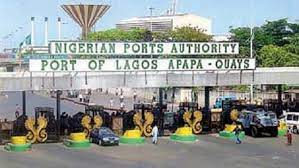The Managing Director of the Nigerian Ports Authority (NPA), Muhammed Bello-Koko, has hinted of strategic efforts being made by the management of the authority to ensure smart ports in the country by 2030.
The NPA boss unveiled this plan at an event in Lagos, said to achieve the target the NPA board and management would welcome support on initiatives required for the establishment of the enabling legal framework for both the Maritime Autonomous Surface Ships (MASS), and the electronic bill of lading projects.
Koko, who was represented at the forum by the NPA’s Principal Manager, Legal, Mr. Leonard Onoja, said that the commencement of Lekki Deep-sea port operations last September would boost port operations and see to the deployment of some of the latest technology in port operations.
Noting that there has been remarkable improvement in the efficiency in Nigeria’s port operations since 2006 when the Federal Government concessioned the ports, Koko said the concessioning had impacted positively on the ports’ infrastructure, access roads and logistics management, among others.
He said that government had also empowered the Nigerian Shippers’ Council as port economy regulator to ease port operations.
Earlier in his remarks, the Managing Director, Mediterranean Shipping Company (MSC), Mr. Andrew Lynch, said that 50 percent of all bills of lading in the world would be technology-powered by 2030 following the International Maritime Organisation’s (IMO) plans to effect mandatory convention for Maritime Autonomous Surface Ship (MASS) by January 1, 2028.
According to him, the digital switch to electronic Bill of Lading (eB/L) will help the maritime industry move towards reducing the cost of doing business incurred as a result of delay, save time, reduce green house emissions associated with production of physical paper document.
Lynch said: “By 2030, we expect that 50 per cent of all bill of lading issued by our company and when I say our company I mean the industry because the other companies are in step with us, so 50 per cent of all bill of lading in the world would be digital.
“This is a relatively new technology. The terms and conditions are the same with the physical bill of lading. It doesn’t change anything at all.
”Signatures can be electronically provided. Almost all the countries in West Africa now have an active eB/L registering on the platform and transacting to some extent. Current usage accounts for less than 5 per cent of our total transactions but that is still a huge number,” he added.






